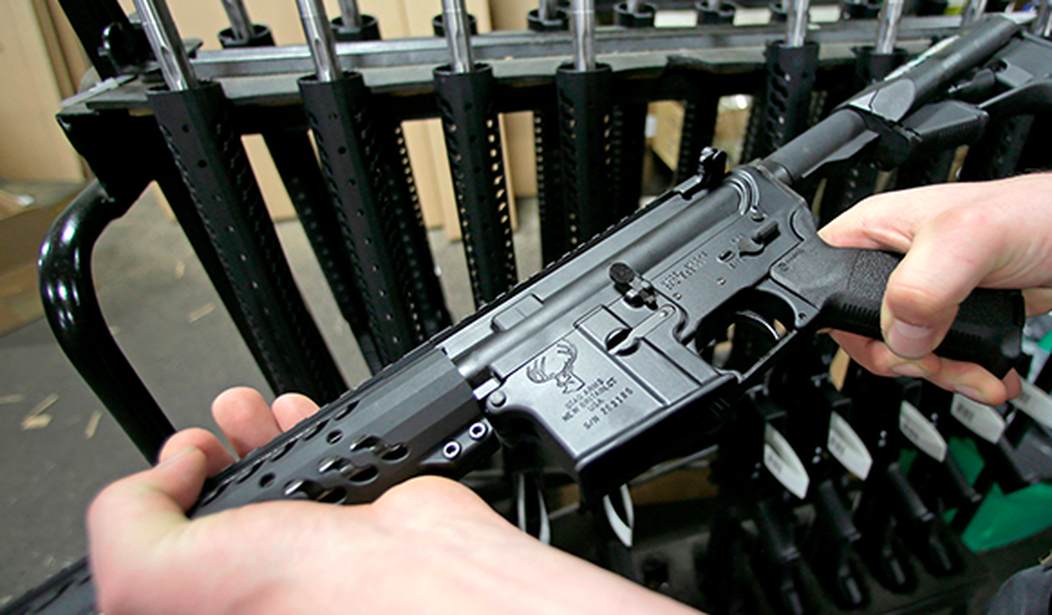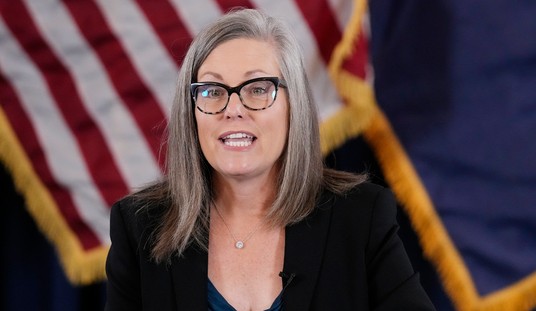Earlier today my colleague Tom Knighton covered the request by Republican lawmakers in Colorado that Attorney General Pam Bondi intervene to stop the state's new semi-auto ban/permit-to-purchase scheme from taking effect. Rep. Ryan Armagost, was among several lawmakers and sheriffs speaking out in favor of federal intervention at a press conference on Wednesday, arguing that “when state leaders ignore constitutional concerns and refuse to even allow a resolution requesting judicial review, federal oversight becomes not only appropriate, but absolutely necessary.”
But what, exactly, can Bondi and the Second Amendment task force she's implementing actually do to prevent SB 3 from being enforced when the law kicks in next year? The Attorney General can declare the Colorado law a violation of the Second Amendment, but that opinion carries no legal authority in and of itself.
Bondi could, however, use the power and authority of the Department of Justice to directly sue or indirectly help lawsuits against the state of Colorado over the new law, which requires anyone purchasing almost any semi-automatic long gun that can accept a detachable magazine to first undergo additional training and obtain a permission slip from their local sheriff.
If the Justice Department examines the law and believes it to be unconstitutional, that would do little to hamper that law’s enforceability, two legal experts told The Post.
“The Department of Justice doesn’t get to decide the constitutionality,” said Spencer, from the CU Law School. “As of today, our Supreme Court sticks to its longstanding precedent that the Supreme Court gets to decide, ultimately, the constitutionality of legislatively enacted bills. This is as fundamental as it could be.”
Still, he continued, “there could be implications” from an agency review.
The DOJ could file a lawsuit on its own against the state, said Spencer and Jason Dunn, the former U.S. attorney for Colorado during Trump’s first administration. It could also issue a report saying it believes the law is unconstitutional or — should someone else sue to block it — the agency could submit a statement of interest supporting the litigation.
The Justice Department recently took a similar step in support of former Mesa County Clerk Tina Peters, who’s incarcerated for violating election security laws.
A DOJ statement that the law is unconstitutional and its filing of a statement of interest could add heft to a lawsuit challenging it, Spencer said. Those documents could also provide political cover for district attorneys or county sheriffs who don’t want to enforce the law, he said.
I think it's more likely that Bondi and the DOJ would support the inevitable lawsuits by 2A organizations rather than directly intervening, but that's based solely on the idea that the 2A task force is going to be working with a finite number of resources and staff and will have to engage in some legal triage in picking its battles.
And honestly, a lot can happen between now and the summer of 2026, when SB 3 is scheduled to take effect. The Supreme Court once again listed the Snope and Ocean State Tactical cases for review at today's conference, and could decide to take up the challenges to Maryland's "assault weapon" ban and Rhode Island's prohibition on "large capacity" magazines in the very near future. If the Court hears oral arguments in Snope this fall, a decision would almost certainly be issued before SB 3's effective date, and the DOJ could always weigh in with support for the plaintiffs in Snope, which would have an indirect impact on the future of Colorado's semi-auto ban/permit-to-purchase scheme.
Of course, even if SCOTUS finds Maryland's law unconstitutional, defenders of Colorado's new law will claim it's not an outright ban (even though that was the intent of the original language in SB 3). There'll still be a question for the Court to address about whether a permit-to-purchase law is constitutional, and the DOJ could do a real service to gun owners and 2A advocates by either taking the lead in litigation on the issue or providing an amicus brief buttressing the position of plaintiffs who argue that such a requirement isn't a part of the national tradition of gun ownership and a clear violation of our Second Amendment rights.
Was there a political component to the press conference Republicans held in Denver on Wednesday? Of course there was, and rightfully so. Republicans should be calling out Democrats for trying to infringe on a fundamental civil right at every opportunity (just as Democrats are accusing Republicans of infringing on due process rights of illegal immigrants who are being deported). But that doesn't mean that their pleas for help are entirely performative in nature. While Bondi doesn't have the power to just declare a state statute null and void, she is in a position to render aid to Colorado gun owners and the law enforcement officials tasked with enforcing SB 3's edicts long before the law takes effect.









